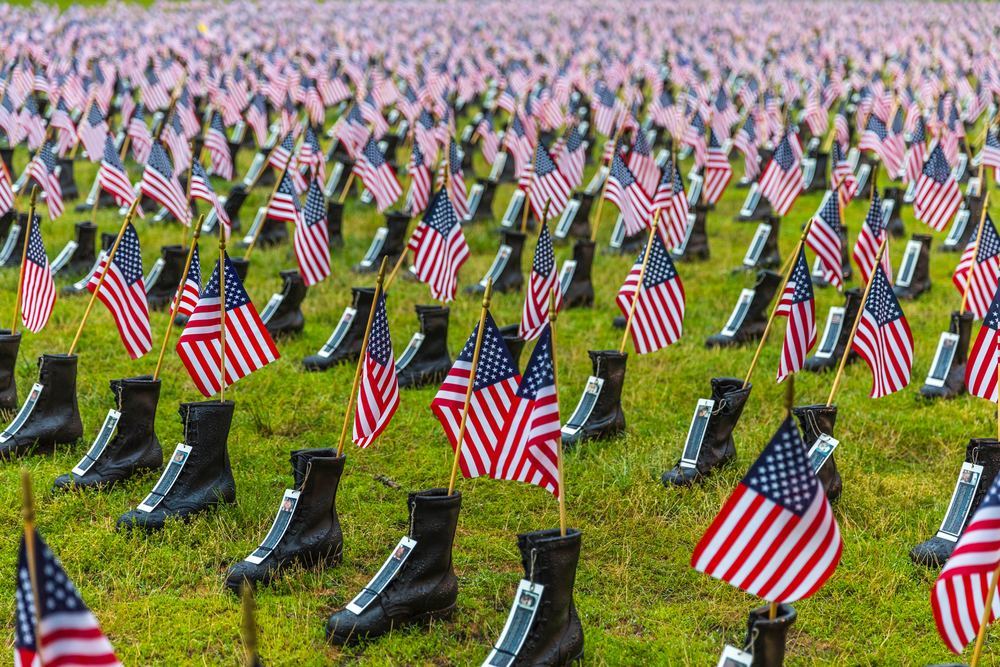by Whitney Hopler, Communications Manager
Everyone goes through pain of some kind on a daily basis, and when crises hit, pain intensifies. Illness, injuries, relationship breakups, and academic or work failures are just some of many ways that people at Mason struggle with pain that needs healing. One part of the campus community that is especially well-acquainted with pain and the healing process is the group of approximately 2,000 students who are military veterans. Some of them are tapping into well-being practices to heal from even the toughest pain.
Jeremy Goodwin, a senior majoring in civil engineering, faced post-traumatic stress disorder after returning from three different overseas deployments — to Iraq, Afghanistan, and Libya – as a U.S. Marine Corps combat engineer. He worked hard to protect others from the dangers of improvised explosive devices. But despite his vigilance, two of the members of the team he led in Afghanistan suffered serious injuries from bombs. One lost both legs; another was hit with severe facial injuries.
“I felt very responsible for their injuries. I took that hard for a very long time,” Goodwin recalled. “Eventually I realized that it wasn’t my fault and those men were not mad at me. I did the best I could to protect them. It just happened that way.”
Before reaching peace about what happened, however, Goodwin had a lot of healing to do. He was struggling with overwhelming feelings of grief and guilt, which were taking over his daily life. “I didn’t want to be defined by the situation,” he said.
So Goodwin began to pursue greater well-being. The key well-being factor that helped him during the process, he said, was investing in relationships. He went to counseling through the Veteran’s Administration and opened up to his friends and family. Goodwin’s wife, brother, childhood best friend, and fellow Mason students were all important parts of a supportive network of relationships with which he surrounded himself.
“Conversations can be therapeutic,” said Goodwin. During a crisis, he added, people may not find someone who can relate to what they’re going through, but “everyone can listen.”
The guys from his team in Afghanistan who were injured also helped him heal by assuring him that they didn’t blame him for the accident. The former teammates are still friends of his. “We’re very close,” Goodwin said. “We get together regularly.”
Just by having the courage to reach out, people can find the help they need, said Goodwin. “There’s always somebody who cares about you very deeply – more than you realize. Reach out to that person when you’re in a crisis.”
One of the best places to develop more well-being is through a community at Mason where others share your same interests, said Goodwin. For veterans and active duty students, that’s the Office of Military Services, where Goodwin and many others give and receive support to each other. “We try to create a supportive community,” said Jennifer Connors, director of military services. “We carry on the Mason tradition of resilience. We try to encourage people to build inner strength from a variety of well-being practices.” Those practices range from the physical (like exercise) to the mental (like mindfulness), she said.
Sometimes people hesitate to reach out for the well-being help they need, said Connors. However, she said, “Asking for help is not a sign of weakness. It’s a sign of strength.”
The most common healing issues facing Mason’s veterans are substance abuse (of both alcohol and prescription drugs) and post-traumatic stress disorder, said Ryan Barnett, operations manager for the office. “The first step is recognizing you have an issue,” he pointed out. “The next step is asking for help.” While it can be challenging to seek help at first, he said, it becomes easier once people discover that many caring people truly want to support them.
Choosing relationships with supportive people is vital to healing, Goodwin said. “You should really be aware of who you’re surrounding yourself with, because you really learn a lot from each other.”
Now Goodwin’s healing has come full circle. Not only has he healed, but he uses what he learned to help other people heal from their own pain. He encourages people to ask themselves these key questions regularly: “Who am I spending my time with? What are our conversations like? Am I supporting them as much as they’re supporting me?”

